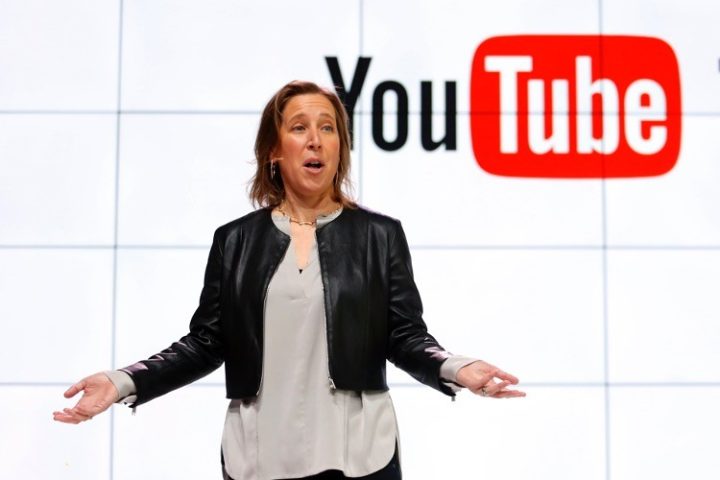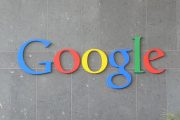
Imagine a news headline in a dystopian world created by George Orwell in his novel 1984: “The Ministry of Truth named a champion of free speech.” Well, the real news comes as close to fiction as possible.
Susan Wojcicki, the CEO of Google’s video platform YouTube, was awarded the Freedom Forum Institute’s “Free Expression Award” in a ceremony sponsored by her own company — despite YouTube’s track record of censorship.
In the digital-awards ceremony, YouTube video creator Molly Burke praised Wojcicki as a free-speech leader before the YouTube CEO detailed in her acceptance speech how much the platform censors its users.
Wojcicki opened up by stating that the platform strives to be “as diverse as possible,” and to represent as many views as possible. She went on to argue that “we also need to make sure there are limits,” which includes “adult content, hate content, and dangerous content” and revealed that the company removed nine million videos in the last quarter, 90 percent of which were taken down by machines. “The freedoms we have, we really can’t take for granted, we really have to make sure we’re protecting them in every way possible.”
She also said there is “a lot of content that technically meets the spirit of what we’re trying to do, but it is borderline, and so for that content we will just reduce — meaning we’re not going to recommend it to our users.”
The logic behind the platform censorship is clear: The removal of “hate” or “dangerous” content is viewed as a measure to protect freedom of speech for those YouTube users who comply with the policy guidelines.
The website “YouTube Censorship” keeps track of channels, videos, and topics that YouTube routinely bans.
Currently, one of the main missions of YouTube is to weed out any “medical misinformation” regarding COVID-19 pandemic. Any videos and channels that deviate from the official narrative, and advocate for less restrictions, discuss safe and alternative treatments (even green tea was found “dangerous” by YouTube), dispute the use of masks, and that raise concerns over efficacy, necessity, and safety of the vaccines, are mercilessly deleted in the name of free speech. Among others, the platform allegedly censored the channel of a famed medical doctor, Dr. Drew. It even censored Senate testimony from doctors about COVID-19, testimony in the Ohio state legislature, and Florida Governor Ron DeSantis’s roundtable with respectable doctors that backed his liberal (in a good sense of word) approach to battling COVID.
Pro-life news is a no-go on YouTube, too. LifeSite News, one of the leading sources of pro-life news and commentary on the web, has been banned.
Numerous conservative activists and channels are either banned, restricted, or demonetized. In the end of 2020, YouTube decided not to allow content that discussed or alleged voter fraud stemming from the 2020 general election. They removed such videos entirely and promoted corporate content instead. In a blog post, under the heading “Connecting people to authoritative information,” YouTube wrote that their search function for election news resulted in “88% of the videos in top 10 search results” coming from “authoritative news sources,” such as “news channels like NBC and CBS.”
YouTube suspended President Trump’s account, removed raw footage of the Capitol riots on January 6 filmed by the independent journalist Ford Fischer, and demonetized Fischer’s channel for showing no correlation between Trump’s speech and the following riots. Just a couple months earlier, YouTube banned any mentions of “Black Lives Matter violence” that actually caused record economic damage during the “mostly peaceful protests,” making content creators refer to the rioters as “protestors.”
YouTube has even banned videos of an academic conference on media censorship and the dangers of free-speech infringements online. It is reported that the organizers of the conference were careful to avoid copyright infringement, with the large majority of their videos in lecture format; essentially a recorded Zoom call. Speakers included some of the best-known names in media studies, with the event sponsored by institutions such as Stanford University and UCLA. “This wasn’t a keg party with Parler users: it was an academic conference,” said one of the organizers, Mickey Huff of Diablo Valley College in California. But YouTube’s algorithms and “controllers” made the decision to pull the plug.
And YouTube’s automated censorship process is just gaining steam. Just like many other companies, YouTube sent home many of its human moderators to mitigate the spread of the COVID-19 and implemented new automated filters. In the past, an automated process would flag sensitive content and send it to a human moderator to review for quality assurance. Now, under the automation expansion, YouTube accepted a lower threshold for violation and the machine flagged more videos.
In a press release titled “Responsible Policy Enforcement During COVID-19,” the platform disclosed: “Because of choices we made to prioritize the safety of the community, we removed the most videos we’ve ever removed in a single quarter from YouTube.”
The statement is akin to the mainstream approach of the leftist establishment that prioritizes “safety” over freedom. Wojcicki deserves a “Free Expression Award” just as much as Mark Zuckerberg deserves a “Respecting Privacy Award,” Dr. Fauci a “Freedom and Liberties Award,” and Joe Biden a “Building Back Better Award.”




